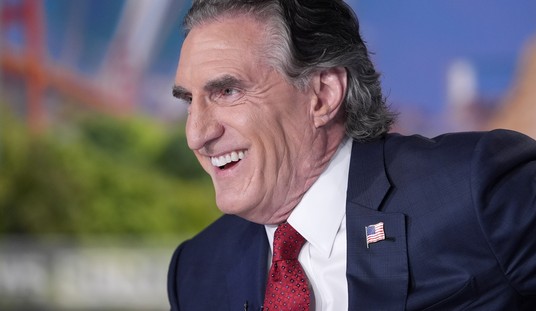Clay Johnson knows a thing or two about new media; he’s the founder of Blue State Digital, the firm that built and managed Barack Obama’s online campaign for the presidency in 2008. As Karl Rove reportedly once said, “Blue State Digital! You guys do great things for the wrong people!”
Johnson was also the director of Sunlight Labs at the Sunlight Foundation, an organization that aims to give people greater access to government data. Johnson has experience with software development, politics, entrepreneurism and non-profits. When he writes about new media in his new book “The Information Diet,” then, he knows whereof he writes.
No, Johnson isn’t blind to the many benefits of the technological advances of the past two centuries or to the many benefits of the blogosphere — but he also isn’t blind to the drawbacks of what he calls Big Info.
The premise of “The Information Diet” is simple: Just as technological advances revolutionized the way farmers produced food, so technological advances have revolutionized the way content creators produce information. Today, we’re able to produce more information more cheaply than ever before — but, just as the cheapest food is often the least nutritious, so the cheapest information is also often the least informative. In a nutshell: Affirmation and entertainment are cheaper than facts and figures.
Johnson argues that the tendency to gorge on information that reinforces our biases leads to information obesity, a condition in which we’re simultaneously hyperinformed and yet blissfully unaware of the ironies of our way of thinking. Picture an intelligent, well-informed man bearing a poster that reads, “Get your government hands off my Medicare!” Johnson has actually seen that man. He’s the poster child for information obesity.
The first part of Johnson’s book exposes the realities of profit-driven “churnalism,” a new form of journalism in which traffic potential, revenue potential and turn-around time primarily determine what content an editor covers. At the bottom of the list of considerations is editorial quality. That list of factors specifically comes from an AOL document leaked in early 2011, but plenty of other online information organizations have adopted a similar approach. Johnson doesn’t necessarily condemn what has come to be known as “The AOL Way” — it’s obviously a savvy business model — but he clearly thinks it’s important that information consumers understand that content creators today (or, at the very least, their managers) are driven more by the desire to raise advertising revenue than by any noble desire to tell the truth no matter what the consequences. With that understanding, consumers can begin to filter and interpret the information they receive from those content creators accordingly.
The second part of Johnson’s book offers his prescription to avoid information obesity. It’s as straightforward as the entire book: Consume deliberately. Take in information over affirmation. Two more of his tips: (1) Consume locally. Pay attention to information that is actionable and relevant to you — neighborhood news, local news, state news. (2) Seek a diversity of viewpoints. Challenge yourself with the opposition.
This strikes me as an important book for anyone who is highly plugged into the blogosphere, whether conservative or liberal. We call ourselves “information junkies” or “political junkies” for a reason: We’re addicted to that next hit of affirmation. Realistically, we’re the ones most susceptible to epistemic closure — to the idea that any source that contradicts us can’t be trusted. In fact, I faced that very problem as I read “The Information Diet.” After all, it was authored by a guy who has actively campaigned for politicians I vehemently dislike. When I began to read the book, I wondered: “Why should I trust that he, like me, wants to advance truth? How can I be sure his motive to write the book wasn’t to delegitimize the blogosphere, which has become one of the few far-reaching forums for the dissemination of conservative ideas in this country?”
But, chapter by chapter, Clay Johnson won me over. “The Information Diet” isn’t necessarily a call to eliminate the existence of Big Info (although, if everybody adopted his recommendations, the demand for it would be greatly diminished): As its subtitle makes clear, it’s “a case for conscious consumption.” I’ve written before that new media demands more of consumers than old media: It demands engagement, an active grappling with the facts and with the arguments advanced on both sides. “The Information Diet” is a helpful primer on how to engage the information at our disposal.
But why take it from me? Watch this introduction and go straight to the source. Read the book itself!








Join the conversation as a VIP Member